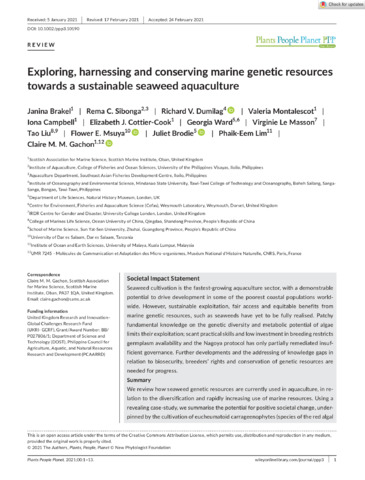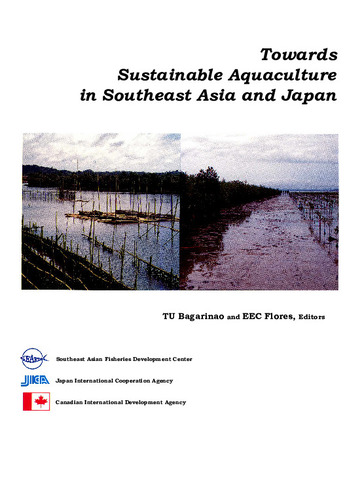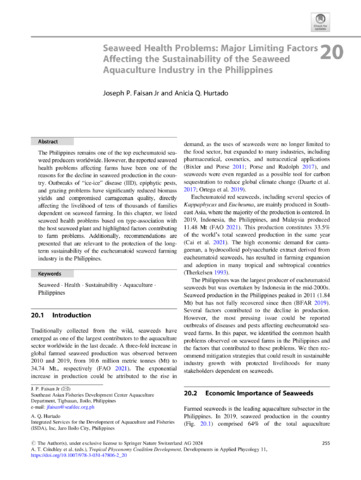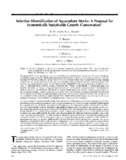Exploring, harnessing and conserving marine genetic resources towards a sustainable seaweed aquaculture

Associated URL
nph.onlinelibrary.wiley.comDate
2021-03-27Author
Page views
603Metadata
Show full item recordCited times in Scopus
135 readers on Mendeley
Share
Abstract
Seaweed cultivation is the fastest‐growing aquaculture sector, with a demonstrable potential to drive development in some of the poorest coastal populations worldwide. However, sustainable exploitation, fair access and equitable benefits from marine genetic resources, such as seaweeds have yet to be fully realised. Patchy fundamental knowledge on the genetic diversity and metabolic potential of algae limits their exploitation; scant practical skills and low investment in breeding restricts germplasm availability and the Nagoya protocol has only partially remediated insufficient governance. Further developments and the addressing of knowledge gaps in relation to biosecurity, breeders’ rights and conservation of genetic resources are needed for progress.
Suggested Citation
Brakel, J., Sibonga, R., Dumilag, R., Montalescot, V., Campbell, I., Cottier-Cook, E., Ward, G., Le Masson, V., Liu, T., Msuya, F., Brodie, J., Lim, P. E., & Gachon, C. (2021). Exploring, harnessing and conserving marine genetic resources towards a sustainable seaweed aquaculture. Plants, People, Planet , 3(4), 337-349. https://doi.org/10.1002/ppp3.10190
Subject
Taxonomic term
Collections
- AQD Journal Articles [1248]
Except where otherwise noted, this item's license is described as Attribution 4.0 International (CC BY 4.0)
Related items
Showing items related by title, author, creator and subject.
-
Towards sustainable aquaculture in Southeast Asia and Japan : proceedings of the Seminar-Workshop on Aquaculture Development in Southeast Asia, Iloilo City, Philippines, 26-28 July 1994
Bagarinao, Teodora, U.; Flores, Efren Ed C. (Aquaculture Department, Southeast Asian Fisheries Development Center, 1995)Documents the presentations at ADSEA '94, the 3rd Seminar-Workshop on Aquaculture Development in Southeast Asia. ADSEA '94 includes reviews of the status of aquaculture development in Southeast Asia and Japan and of the ... -
Seaweed health problems: Major limiting factors affecting the sustainability of the seaweed aquaculture industry in the Philippines
Faisan, Jr., Joseph; Hurtado, Anicia Q. (Springer International Publishing, 2024)The Philippines remains one of the top eucheumatoid seaweed producers worldwide. However, the reported seaweed health problems affecting farms have been one of the reasons for the decline in seaweed production in the ... -
Selective diversification of aquaculture stocks: A proposal for economically sustainable genetic conservation
Doyle, R. W.; Shackel, N. L.; Basiao, Zubaida; Uraiwan, S.; Matricia, T.; Talbot, A. J. (NRC Research Press, 1991)The genetic diversity of aquaculture stocks can be maintained, and their genetic impact on wild stocks minimized, by breeding programmes that deliberately generate genetic diversity. Current animal breeding practices are ...




